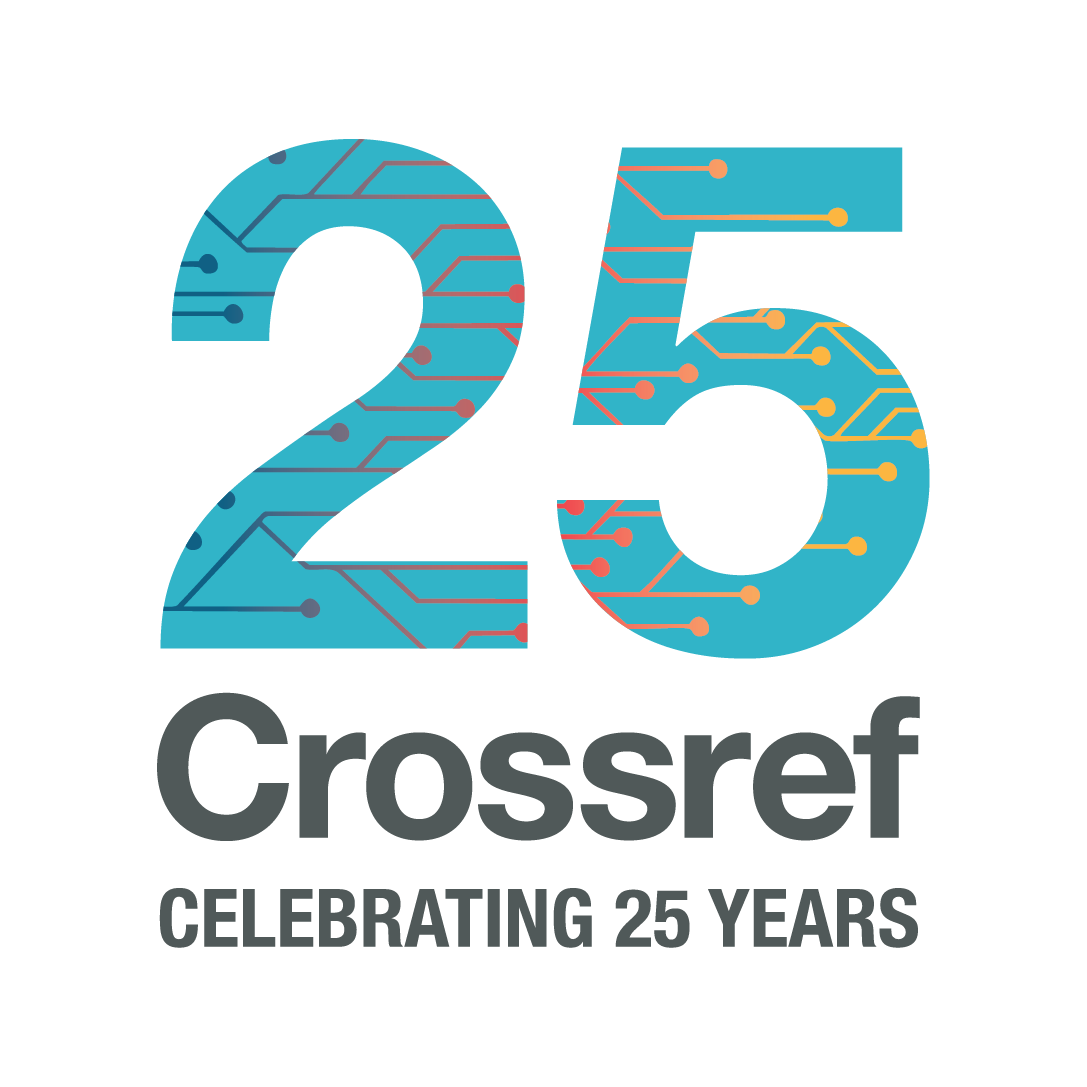Our regular webinars are a great way to find out more about the various Crossref services.
Look back at some recent recordings such as an update on Crossmark , the Funder Registry , getting started with Content Registration , maintaining your metadata , or the latest on Similarity Check .
Recordings of recent webinars Our getting started series Our how-to webinar series About our services Webinars in Arabic Webinars in Indonesian Crossref LIVE Indonesia webinar series: Introduction to Crossref, Content Registration, The Value of Crossref metadata - July 13 - 15 - Online Recordings Webinars in Portuguese Webinars in Russian Webinars in Spanish Webinars in Turkish Webinars in Ukrainian Other If you’re interested in viewing recordings of past LIVE events, check out our YouTube channel .
Crossmark (en español) September 30, 2021Recording
VIDEO
Webinar Recording
VIDEO
Introduction to Crossmark/Crossmark: O que é e como usar Webinar Recording
VIDEO
Crossref ‘Similarity Check’, en español Webinar Recording
VIDEO
OpenCon Oxford 2020 Webinar Recording
VIDEO
Crossref İçerik Kaydı Webinarı, Türkçe | Content Registration at Crossref , Turkish Webinar Webinar slides Webinar Recording
VIDEO
Webinar slides Webinar Recording
VIDEO
Finding your way with Crossref: getting started & additional services Webinar slides Webinar Recording
VIDEO
Melhores Práticas para Registro de Conteúdo/Crossref Content Registration in Brazilian Portuguese Date: Wednesday, October 7, 2020Webinar slides Webinar Recording
VIDEO
Registro y actualización de contenido en Crossref / Register and update content in Crossref Date: Thursday, October 1, 2020Webinar slides Webinar Recording
VIDEO
ندوه عن كيفية استخدام كروس مارك باللغة العربية | Crossmark How-To Arabic Date: Tuesday, September 15, 2020Webinar slides Webinar Recording
VIDEO
Getting started with books at Crossref Date: Wednesday, July 22, 2020Webinar slides Webinar Recording
VIDEO
Introduction to Similarity Check Date: Thursday, April 30, 2020Webinar Slides Webinar Recording
VIDEO
Introduction to ROR Date: Wednesday, April 29, 2020Webinar Recording
VIDEO
Date: Thursday, March 5, 2020Webinar Recording
VIDEO
Participation Reports webinar Date: Wednesday, October 7, 2020Webinar Slides Webinar Recording
VIDEO
Вебінар “Інструмент Participation Reports” (Українською мовою) - Participation Reports webinar in Ukrainian Date: Tuesday, August 11, 2020Webinar Slides Webinar Recording
VIDEO
Introduction to Participation Reports webinar in Portuguese Date: Wednesday, October 30, 2019Webinar Slides Webinar Recording
VIDEO
Proposed schema changes - have your say Date: Thursday, January 2, 2020Webinar Slides Webinar Recording
VIDEO
Using ORCID in publishing workflows Date: Monday, September 16, 2019Webinar Recording
VIDEO
Research infrastructure with and for funders Date: Thursday, September 6, 2019Webinar Recording
VIDEO
Understanding Crossref Reports - presented in Russian Date: Thursday, April 18, 2019Webinar Slides Webinar Recording
VIDEO
Reference Linking & Cited By webinar - in Portuguese Date: Tuesday, April 16, 2019Webinar Recording
VIDEO
Crossref and DataCite joint data citation webinar Date: Monday, Feb 4, 2019Webinar Slides Webinar Recording
VIDEO
Introduction to Crossmark - in Russian Date: Thursday, December 6, 2018Webinar Slides Webinar Recording
VIDEO
Registering content and adding to your Crossref metadata - in Portuguese Date: Monday, November 26, 2018Webinar Slides Webinar Recording
VIDEO
Crossref and OJS - presented in Russian Date: Thursday, November 22, 2018Webinar Recording
VIDEO
Reference Linking & Cited-By - in Arabic Date: Thursday, November 8, 2018Webinar Slides Webinar Recording
VIDEO
Introduction to Reference Linking and Cited-by webinar - in Spanish Date: Monday, November 7, 2018Webinar Slides Webinar Recording
VIDEO
Introduction to Crossref and Content Registration - in Spanish Date: Tuesday, October 24, 2018Webinar Slides Webinar Recording
VIDEO
Date: Tuesday, September 11, 2018Webinar Slides: Laura Wilinson Webinar Slides: Anna Tolwinska Webinar Slides: Stephanie Dawson Webinar Slides: Pierre Mounier Webinar Recording
VIDEO
Getting Started with Content Registration - in Arabic Date: Monday, September 17, 2018Webinar Slides Webinar Recording
VIDEO
Introduction to Crossref - in Arabic Date: Monday, August 6, 2018Webinar recording
VIDEO
Getting started as a new Crossref member Date: Thursday, May 24, 2018Webinar Slides Webinar Recording
VIDEO
Reference Linking Date: Date: Wednesday, May 23, 2018Webinar Slides Webinar Recording
VIDEO
Crossmark how-to Date: Tuesday, May 15, 2018Webinar Slides Webinar Recording
VIDEO
Maintaining your metadata Date: Tuesday, April 24, 2018Webinar Slides Vimeo recording Webinar Recording
VIDEO
Introduction to Similarity Check - in Portuguese Date: Tuesday, April 10, 2018Webinar Slides http://bit.ly/simcheck-portuguese Webinar Recording
VIDEO
Date: Thursday, March 8, 2018Webinar Slides Webinar Recording
VIDEO
Getting started with Content Registration: Portuguese Webinar Date: Tuesday, September 5, 2017Webinar Slides Webinar Recording
VIDEO
Crossref Cited-by how-to Date: Tuesday, June 13, 2017Webinar Slides Webinar Recording
VIDEO
Date: Wednesday, July 12, 2017Webinar Slides Webinar Recording
VIDEO
Crossref Cited-by Date: Thursday, June 8. 2017Webinar Slides Webinar Recording
VIDEO
Funding data & the Funder Registry Date: Tuesday, April 4, 2017Webinar Slides Webinar Recording
VIDEO
Preprints and scholarly infrastructure Date: Monday, January 30, 2017Webinar Slides Webinar Recording
VIDEO
Crossmark update Date: Thursday, February 23, 2017Webinar Slides Webinar Recording
VIDEO
Get Started with Content Registration Date: Tuesday, October 17, 2017Webinar Slides Webinar Recording
VIDEO
Introduction to Crossmark Date: Tuesday, Nov 21, 2017Webinar Slides Webinar Recording
VIDEO
Introduction to Crossref: Turkish Seminar Date: Thursday, Nov 2, 2017Webinar Recording
VIDEO
Similarity Check update Date: Tuesday, September 20, 2016Webinar Slides
Funder Registry - in Portuguese Date: Monday, September 26, 2016Webinar Slides
Content Registration maintaining metadata Date: Tuesday, May 17, 2017Webinar Slides Webinar Recording
VIDEO
Date: Thursday, December 14, 2016Webinar Slides
Crossref Similarity Check members update Date: Thursday, March 2Webinar Recording (must register first to view)
If you have a question or would like us to hold a webinar on another topic, please contact our outreach team with your ideas.





